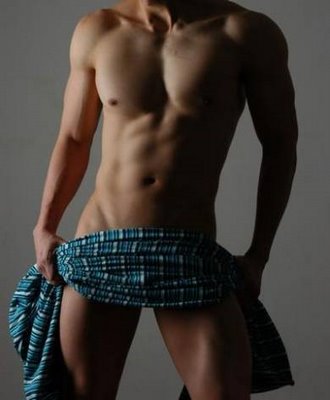 WASHINGTON - Kahlo Benavidez, 20, represents a handful of U.S. minority populations.
WASHINGTON - Kahlo Benavidez, 20, represents a handful of U.S. minority populations.He is young. He is gay. He is Hispanic. He is HIV positive.
He is also unashamed of his past and wants to be something few people would be willing to be - a face for HIV.
"I thought maybe by explaining my story and making it seem more real to people, there would be some reason behind me being HIV positive, and I could turn this experience into something constructive," he said.
Benavidez was the first speaker chosen to participate in a nationwide tour called "Operation: Get Tested," which is aimed at reducing the transmission of HIV in young people.
"I think my problem was that HIV was never a human condition for me, it was a scientific fact. It was like electrons, protons and neutrons – I knew they existed but at the same time there was still something very remote about them," said Benavidez. "I felt the same about HIV."
That's why he says he became infected, and it's the attitude he wants to change in his peers.
The 48-day tour, sponsored by a Pennsylvania-based organization, will take Benavidez and five other HIV-positive people, ages 18 to 26, across the country. They will stop at 35 universities and high schools to speak about their life experiences and teach about HIV prevention. At each site, HIV testing will be available.
Although Benavidez is unsure about the exact sexual encounter that infected him with HIV, he does know it happened in high school. When he was 14, Benavidez told his family he was gay. And, while attending Mayfield High School in Las Cruces, N.M., he lived a double life.
He secretly engaged in unprotected sex. And, although he has never been an IV drug user, he had sex with men who were. Meanwhile, he worked with a program to prevent HIV among homosexual youth and educate teenage mothers about sexually transmitted diseases.
Benavidez admits that, although he was in frequent contact with safe-sex information in high school, he felt the messages were aimed at heterosexuals and he couldn't identify with them.
"I guess I am proof that you can have all of the knowledge you need to protect yourself from being protected and just not listen. I mean, the info is out there," he said.
The Centers for Disease Control and Prevention reports that young "men who have sex with men," or MSM, are at high risk for HIV infection and face many barriers to HIV prevention. One of those is that many of them identify themselves as heterosexual, and as a result, may not relate to prevention messages crafted for gay men.
Allison Subasic, director of the Lesbian, Gay, Bisexual, Transgender and Ally Student Resource Center at Pennsylvania State University, said particular groups of men, such as those on the "downlow," those who engage in sex with both men and women, "sometimes do not identify as being gay or bisexual."
To prevent HIV among men who have sex with men, the prevention message must be tailored to their culture, Rafael M. Díaz, 55, said. Diaz is the author of "Latino Gay Men and HIV: Culture, Sexuality, and Risk Behavior" and a professor of ethnic studies at San Francisco State University.
"The term 'MSM' may be productive for the CDC, but it doesn't talk about reality of people I work with. It doesn't talk about the exile and pain they are sometimes forced by society to live under," Diaz said.
Meanwhile, Benavidez hopes his tour this fall will teach HIV prevention in a more personal and life-changing way for peers regardless of age, gender, ethnicity or sexual orientation.
"I think this tour will make young people realize HIV is still very real. It's not something remote and removed from them," Benavidez said.
from Axcess News
No comments:
Post a Comment